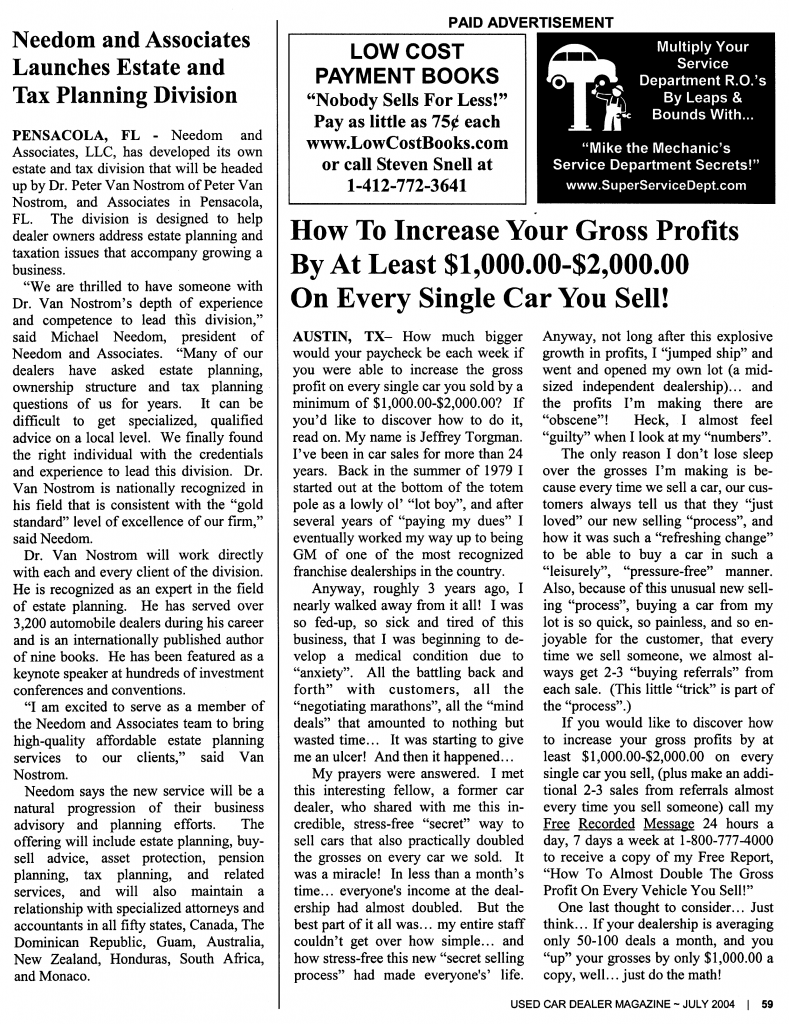You don’t need me to tell you that times are hard. The words of Charles Dickens ring true today: “It is the best of times. It is the worst of times.” How you position yourself and your business will determine whether you experience the best or the worst.
I recently spoke to a well-known certified resume writer/business owner. He described this paradox to me very clearly. “Job seekers need my services more than ever,” he noted. “But this is also the toughest time to spend the extra money to put together a really strong resume.”
The distinction needs to be made between an expense and an investment. Hiring a resume writer who can help your job hunt end satisfactorily is an investment, not an expense. It pays off.
The same is true for marketing, training and business development.
Many people and businesses are scaling back, pinching their pennies and cutting “non-essentials.” The problem is, they need to be good at attracting customers and clients more than ever before. Employees need to be equipped to deliver better service than their competitors, who are too busy saving money to properly train their people.
During “good times,” when money comes easily, the budget has plenty of room for these initiatives. But when revenue starts drying up, most people react in fear. As Samuel Taylor Coleridge said, “What begins in fear usually ends in folly.” You can’t grow a business that way.
When the going gets tough, people and businesses need more information, better direction, more counsel, more inspiration. They need more help. Those who provide the help people need so badly are in position to make these “the best of times” for their businesses.
That is why it is absolutely critical that you:
1.) provide real, tangible value,
2.) present yourself as a trusted advisor, not another money-drain. An investment that will yield a profitable return.
Fear is natural. Implementing defensive strategies is instinctive. But both are counterproductive. You can’t advance and retreat simultaneously.
Retreating is what your competitors are doing.
Statistics show that businesses that maintain or increase aggressiveness in their investments such as marketing and coaching during recessionary phases grow more than 200% more than those that pull back. (See “When the Going Gets Tough, the Tough Don’t Skimp on Their Ad Budgets.” )
The challenges are daunting; the opportunities are awesome.
How are you responding to the economic climate we’re facing now? How does this affect your interactions with clients and prospects?
Counteract This Trend
You’ll do well to consider different strategies to make your services accessible to your target audience. Low-cost entry items, pared-down basic coaching, and group sessions are possible choices.
Whatever you do, do not devalue yourself or your services. The attitude that says “I know it’s hard out there, so I’ll discount my prices,” is a position of weakness. You are not a commodity. You are not less valuable just because the economy is in bad shape currently (If anything, you could charge more because of inflation!)
A better move would be to present alternative options, multiple ways you can help different people in different financial situations.
The quality of what you deliver is of paramount importance here. If you sell a book that makes marked improvements for the reader, not only will he be more likely to purchase your higher-level offers, but he’ll be more able to do so because of those improvements.
Business is not a zero-sum proposition. Your clients are not $2,000/month poorer because they retain your services. They pay you (you win), you help them achieve their goals (they win), and everyone is richer and happier.
Companies who approach their practice from the perspective that someone wins and someone loses are forfeiting some of the benefits they should be getting. They may be doing more harm than good.
You’ve probably heard it said that more millionaires were created in the Great Depression than any other time in American history. It seems that “bad times” aren’t bad for everyone. It’s up to you to decide if you’re going to use this downturn as an excuse for mediocrity and failure, or if you’ll look for the opportunities to gain the ground everyone else is forfeiting.




